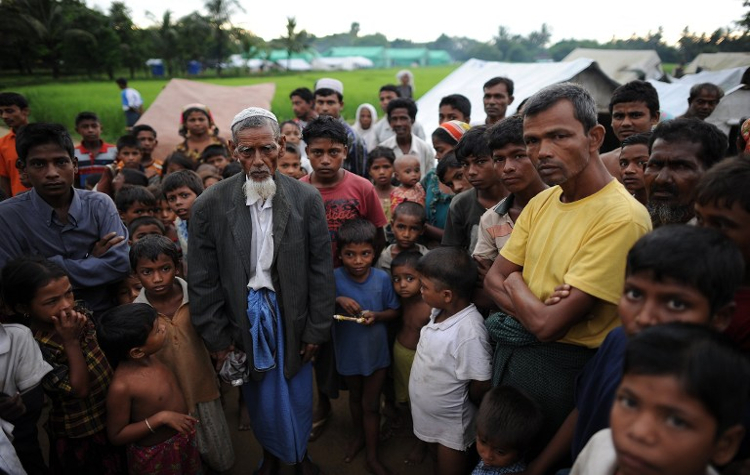(Bangkok, 5 September 2017) – The Asian Forum for Human Rights and Development (FORUM-ASIA) strongly condemns the latest outbreak of violence in Northern Rakhine State in Burma/Myanmar. The latest attacks have seriously endangered the Rohingya community. FORUM-ASIA calls on the international community, including the UN Human Rights Council, to urgently take all action possible to stop the atrocities in the country.
Allegedly more than 1,300 people were killed by security forces and vigilantes in Ratheduang, Maungdaw and Buthiduang Townships over the weekend. The Government of Burma/Myanmar and its State Counsellor, Aung San Suu Kyi must immediately intervene by ceasing all military operations in Northern Rakhine State, allow full access to humanitarian organisations, and cooperate fully with the United Nations Fact Finding Mission on Myanmar.
Tensions have risen in Northern Rakhine after a militant organisation known as the Arakan Rohingya Salvation Army (ARSA) attacked numerous police posts on 25 August 2017. In response, on 27 August, security forces cordoned villages in the three earlier mentioned townships, and reportedly began a brutal crackdown on the civilian population, including women and children, which involved the burning down of villages, indiscriminate firing, and the use of helicopter and rocket propelled grenades.
The ongoing massacre of Rohingyas increasingly seems to amount to ethnic cleansing, if not genocide. A report by the Office of the High Commissioner on Human Rights on similar attacks on the Rohingya community between October 2016 and the beginning of this year concluded that it is very likely that crimes against humanity have been committed. The Burma/Myanmar Government has so denied that such crimes against humanity are taking place, and have made no meaningful interventions to stop the violence.
‘Attacks on civilians not only violates international human rights law, but also international humanitarian law. The pertinent refusal to acknowledge what is happening by the Burma/Myanmar Government, including Nobel Peace Prize Laureate, Aung San Suu Kyi, is worsening the situation even further as perpetrators could interpret it as an implicit endorsement to continue to commit violations,’ says John Samuel, the Executive Director of FORUM-ASIA.
It is reported[1] that, as of now, more than 120,000 Rohingyas have fled the conflict zone and have become either internally displaced persons (IDPs) or refugees in neighbouring Bangladesh. At least 20,000 people, including women and children are stranded in mountainous terrain between the countries without food or water.
In March 2017, the United Nations Human Rights Council established a Fact Finding Mission on Burma/Myanmar. The Fact Finding Mission was given a mandate to examine ‘the facts and circumstances of the alleged recent human rights violations by military and security forces, and abuses, in Burma/Myanmar, in particular in Rakhine State, including but not limited to arbitrary detention, torture and inhuman treatment, rape and other forms of sexual violence, extrajudicial, summary or arbitrary killings, enforced disappearances, forced displacement and unlawful destruction of property, with a view to ensuring full accountability for perpetrators and justice for victims.’[2]
Aung San Suu Kyi announced that the setting up of the Fact Finding Mission was not in keeping with realities on the ground, and declared that her Government will not issue visas for the three experts leading the mission. The Burma/Myanmar Government must allow full access to the mission.
‘When the UN Human Rights Council meets next week for its 36th Session, it should strongly condemn the ongoing violence, call for an end to the fighting, and for full humanitarian access to be granted to aid organisations,’ adds John Samuel, ‘It is extremely disappointing that the UN Security Council did not any proposals for action on Burma/Myanmar last week. The international community cannot afford to adopt a lukewarm approach to the atrocities in Rakhine State at this critical juncture. It must act now before more lives are lost.’
***
For a PDF version of this statement, click here.
***
[1]https://www.theguardian.com/world/2017/sep/05/more-than-120000-rohingya-flee-myanmar-violence-un-says
[2]Resolution adopted by Human Rights Council on 24 March 2017. http://daccess-ods.un.org/access.nsf/Get?Open&DS=A/HRC/RES/34/22&Lang=E



